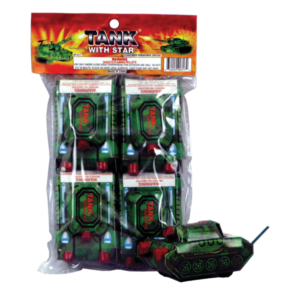Home » The Role of Flexible Packaging in Supply Chain Efficiency
The Role of Flexible Packaging in Supply Chain Efficiency
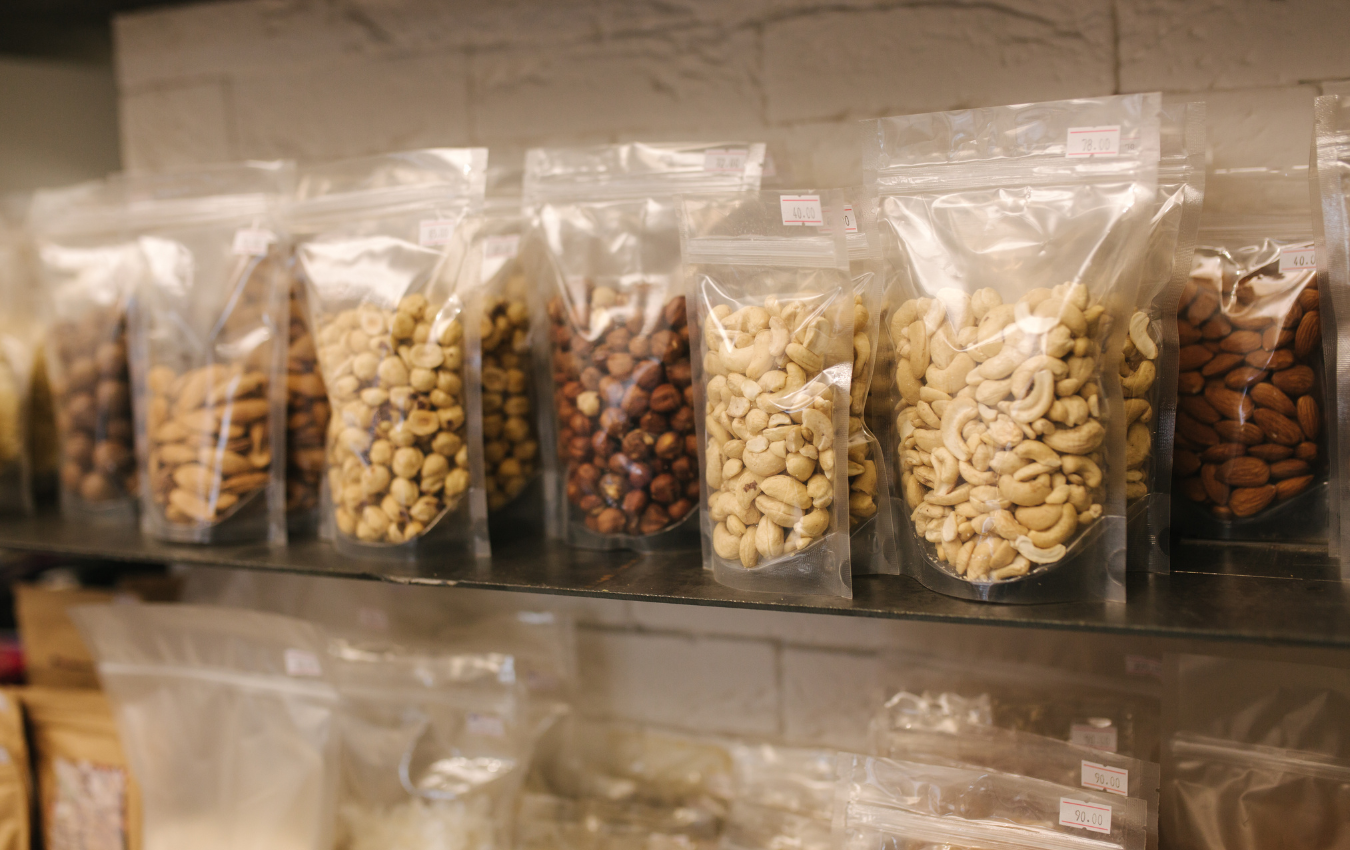
The packaging sector has undergone a considerable transformation in the last few decades, with flexible packaging taking a significant lead. The shift is primarily due to its numerous benefits like lower costs, enhanced convenience, and sustainability, but one area where flexible packaging truly shines is in supply chain efficiency. Let’s delve deeper into understanding the role of flexible packaging in enhancing the efficiency of supply chains.
What is Flexible Packaging?
Flexible packaging refers to packages or materials that can easily change shape upon filling. These packaging forms often comprise plastics, paper, aluminum foils, or a combination of these materials. This can include anything from resealable food bags and pouches to flexible pharmaceutical packaging, illustrating the wide application spectrum of flexible packaging.
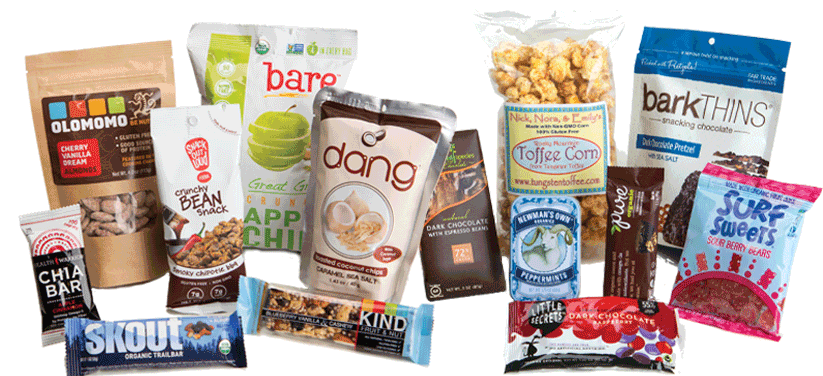
Flexible Packaging and Supply Chain Efficiency: An Inextricable Link
Storage and Transportation Efficiency
One of the critical elements of supply chain management is ensuring the efficiency of storage and transportation. Flexible packaging dramatically improves these aspects. Its compact, lightweight nature reduces space requirements, enabling businesses to transport more products per shipment and utilize storage space more effectively. This improvement in freight efficiency not only reduces logistical costs but also curbs greenhouse gas emissions, promoting sustainability.
Packaging and Unpacking Efficiency
The ease of packing and unpacking offered by flexible packaging is another aspect contributing to supply chain efficiency. For instance, flexible packaging often incorporates features like zippers, spouts, and handles that simplify handling, opening, and resealing. This user-friendliness not only enhances consumer experiences but also aids in efficient product loading and unloading, saving time and labor costs in the supply chain.
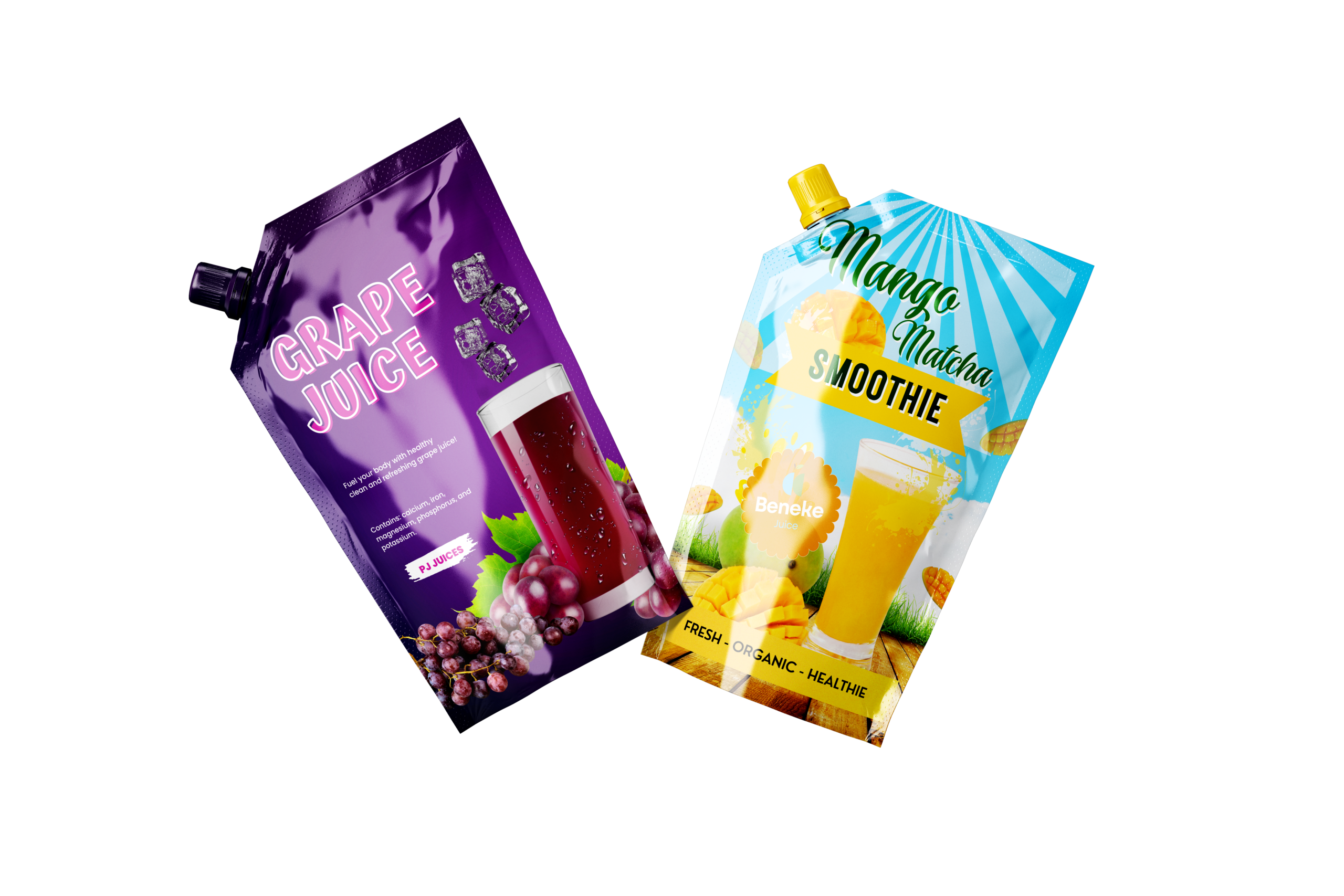
Waste Reduction and Environmental Impact
Flexible packaging is generally lighter than its rigid counterparts, meaning it requires less material to produce. This attribute not only reduces waste generation at the production stage but also after consumer use, as there is less packaging material to discard.
Moreover, many flexible packages are designed to be resealable, which can prolong product life and further reduce waste. This sustainability factor plays a critical role in promoting a green supply chain.
Product Protection and Shelf Life Extension
Flexible packaging materials are designed to provide optimal protection for products against environmental factors such as moisture, light, and air, ensuring product integrity and quality. This attribute reduces the risk of product spoilage or damage during transport or storage, leading to fewer losses in the supply chain.
Many flexible packaging options also extend the shelf life of products, especially food items. This increased longevity reduces waste and the frequency of restocking, thus optimizing supply chain operations.
Cost Savings
By optimizing transportation and storage, reducing waste, and extending product shelf life, flexible packaging ultimately leads to substantial cost savings across the supply chain. These savings can then be passed on to the consumer, or reinvested into business growth and innovation.

The Future of Flexible Packaging in Supply Chains
With the continuous evolution of technology and consumer demands, the role of flexible packaging in supply chains is expected to grow even more significant. Innovations such as smart flexible packaging, which incorporates technologies like RFID tags and freshness sensors, will further enhance supply chain efficiency, transparency, and traceability.
If you are interested in flexible packaging solutions, then partner with Brown Packaging today to get started.
Retail packaging continues to evolve as brands balance sustainability, supply chain performance, and consumer experience. In 2026, buyers face new challenges shaped by material innovation, compliance requirements, and rising consumer expectations. Understanding these trends helps companies stay competitive while aligning packaging programs with industry standards. Sustainability Becomes Non-Negotiable Greater use of recyclable and compostable substrates. Retailers pushing suppliers toward FSC-certified materials. Minimalist designs that reduce waste without losing impact. Smarter Packaging for Supply Chains Increased adoption of right-sizing to reduce freight costs. Boxes designed for automation and faster fulfillment. Stronger corrugated grades to withstand long e-commerce journeys. Enhanced Consumer Experience Custom graphics for seasonal campaigns and limited editions. Tear strips, resealable closures, and window cutouts for convenience. Premium finishes that elevate gift packaging at retail. Growth of Hybrid Packaging Formats Combining corrugated strength with folding carton graphics. Modular designs for multi-SKU and club store environments. Packaging engineered to serve both e-commerce and in-store needs. Compliance and Testing Standards Retailers demanding ISTA and ASTM testing for packaging durability. Supply chain audits on recyclability and sustainability claims. More pressure for transparent reporting on environmental impact. Retail Packaging Solutions with Brown Packaging Brown Packaging helps brands adapt to evolving retail packaging trends. From sustainable substrates to automation-friendly designs, our solutions balance branding, durability, and compliance for 2026. Contact us to prepare your packaging program for the year ahead. References Forest Stewardship Council (FSC). (2023). FSC Packaging Certification Guidelines. Retrieved from https://fsc.orgSustainable Packaging Coalition. (2023). Packaging Trends and Consumer Insights. Retrieved from https://sustainablepackaging.orgSoroka, W. (2009). Fundamentals of Packaging Technology (4th ed.). Institute of Packaging Professionals. (714)300-0650 request@brownpackaging.com Most Recent Posts: Categories: Corrugated Ecommerce ESD Design Display Flexible Packaging Foam Folding Carton Packaging Plastic Packaging Pouch Printing Protection Retail Rigid Box Thermoform Sustainability Subscribe To Our Newsletter By submitting your information, you agree to our terms and conditions and privacy policy. Custom Packaging Facebook Twitter LinkedIn Pinterest Relevant Posts
Supplier contracts can make or break a packaging program. Without the right terms, buyers risk price volatility, missed lead times, and inconsistent product quality. In 2026, negotiating smart contracts is essential for controlling costs, securing reliable supply, and meeting compliance requirements. Why Packaging Contracts Matter Cost stability: Protects against sudden raw material price spikes. Supply security: Ensures availability during peak demand. Quality control: Aligns suppliers with testing and compliance standards. Operational efficiency: Streamlines purchasing and reduces administrative burden. Key Terms Buyers Should Negotiate Volume commitments: Secure better pricing with accurate forecasts. Price adjustment clauses: Define when and how costs can change. Lead times and delivery windows: Avoid shortages and production delays. Testing and compliance: Require ISTA, ASTM, or FSC certification where applicable. Sustainability commitments: Ensure suppliers align with environmental goals. Risks of Weak Contracts Paying inflated prices during market fluctuations. Receiving inconsistent corrugated strength or print quality. Missed shipments leading to costly expedited freight. Difficulty meeting retailer or regulatory compliance. Best Practices for Buyers in 2026 Leverage data: Use past order history to negotiate realistic volumes. Dual sourcing: Maintain backup suppliers for risk management. Annual reviews: Reassess terms to reflect changes in demand and compliance. Collaborative approach: Treat suppliers as partners, not just vendors. Packaging Solutions with Brown Packaging Brown Packaging helps buyers secure strong supplier contracts that balance cost, quality, and supply chain reliability. Our partnerships and industry expertise ensure your packaging program is protected for 2026 and beyond. Contact us to discuss supplier solutions. References Soroka, W. (2009). Fundamentals of Packaging Technology (4th ed.). Institute of Packaging Professionals.Fiber Box Association. (2024). Corrugated Packaging Market Outlook. Retrieved from https://www.fibrebox.orgSustainable Packaging Coalition. (2023). Supplier Standards for Sustainable Packaging. Retrieved from https://sustainablepackaging.org (714)300-0650 request@brownpackaging.com Most Recent Posts: Categories: Corrugated Ecommerce ESD Design Display Flexible Packaging Foam Folding Carton Packaging Plastic Packaging Pouch Printing Protection Retail Rigid Box Thermoform Sustainability Subscribe To Our Newsletter By submitting your information, you agree to our terms and conditions and privacy policy. Custom Packaging Facebook Twitter LinkedIn Pinterest Relevant Posts
Packaging compliance is no longer optional—it’s a requirement for accessing retail shelves, shipping networks, and international markets. In 2026, buyers must navigate evolving regulations around sustainability, labeling, and testing to avoid costly fines, rejected shipments, or damaged customer relationships. Why Compliance Matters in 2026 Retail requirements: Major retailers demand FSC, ISTA, and sustainability certifications. E-commerce standards: Carriers enforce dimensional weight and package testing rules. Global trade: Export packaging must comply with ISPM 15, ASTM, and ISO guidelines. Consumer trust: Transparency in packaging claims impacts purchasing decisions. Key Compliance Areas for Buyers Material sourcing: FSC-certified corrugated and board for sustainability. Labeling standards: GS1-compliant barcodes and accurate product details. Durability testing: ISTA and ASTM protocols for drop, vibration, and compression. Sustainability regulations: Requirements for recyclable or compostable materials. Chemical restrictions: Compliance with FDA, EU, or state-specific standards. Common Compliance Challenges Keeping up with frequent regulatory changes. Managing multiple certifications across suppliers. Balancing compliance with cost-efficiency. Verifying supplier claims for sustainability. Best Practices for Staying Compliant Audit suppliers annually to confirm certification validity. Run internal packaging tests before scaling. Track regulatory updates for each region you ship to. Work with experienced partners who understand industry compliance. Packaging Solutions with Brown Packaging Brown Packaging helps buyers meet 2026 compliance standards with FSC-certified materials, ISTA-tested designs, and regulatory expertise. Our team ensures your packaging meets retailer, carrier, and sustainability requirements. Contact us to keep your program compliant. References Forest Stewardship Council (FSC). (2023). FSC Certification Guidelines for Packaging. Retrieved from https://fsc.orgInternational Safe Transit Association (ISTA). (2023). ISTA Testing Procedures for Transport Packaging. Retrieved from https://ista.orgGS1. (2024). Global Standards for Packaging and Labeling. Retrieved from https://www.gs1.org (714)300-0650 request@brownpackaging.com Most Recent Posts: Categories: Corrugated Ecommerce ESD Design Display Flexible Packaging Foam Folding Carton Packaging Plastic Packaging Pouch Printing Protection Retail Rigid Box Thermoform Sustainability Subscribe To Our Newsletter By submitting your information, you agree to our terms and conditions and privacy policy. Custom Packaging Facebook Twitter LinkedIn Pinterest Relevant Posts
In 2026, sustainability is no longer just a trend—it’s a buyer expectation. Forest Stewardship Council (FSC) certification has become a key benchmark for responsible packaging, signaling that materials are sourced from responsibly managed forests. For packaging buyers, FSC certification is more than a compliance checkbox—it’s a brand value that influences purchasing decisions, retailer acceptance, and customer loyalty. What Is FSC Certification? The Forest Stewardship Council certifies that paper-based packaging materials are sourced from forests managed for environmental responsibility, social benefit, and economic viability. FSC Mix: Packaging contains a blend of FSC-certified and controlled wood. FSC Recycled: Packaging is made entirely from recycled fiber. FSC 100%: Packaging is sourced only from FSC-certified forests. Why FSC Matters to Buyers in 2026 Retail access: Many major retailers now require FSC-certified packaging. Sustainability goals: Aligns with corporate ESG and carbon reduction commitments. Consumer trust: Customers recognize the FSC label and view it as credible. Global compliance: Meets international sustainability regulations. How FSC Certification Strengthens Brand Value Differentiation: Stand out with certified sustainable packaging. Marketing advantage: FSC logos reinforce eco-friendly messaging. Risk reduction: Verified sourcing prevents greenwashing claims. Customer loyalty: Environmentally conscious buyers prefer certified products. Challenges in FSC Implementation Limited supply of certain FSC substrates. Higher costs compared to non-certified materials. Need for supplier audits and documentation. Packaging Solutions with Brown Packaging Brown Packaging partners with buyers to integrate FSC-certified materials into corrugated boxes, folding cartons, and retail packaging. Our solutions support sustainability while maintaining cost efficiency and protection. Contact us to strengthen your brand with FSC-certified packaging. References Forest Stewardship Council (FSC). (2023). FSC Certification Guidelines for Packaging. Retrieved from https://fsc.orgSustainable Packaging Coalition. (2023). Consumer Insights on Sustainable Packaging. Retrieved from https://sustainablepackaging.orgSoroka, W. (2009). Fundamentals of Packaging Technology (4th ed.). Institute of Packaging Professionals. (714)300-0650 request@brownpackaging.com Most Recent Posts: Subscribe To Our Newsletter By submitting your information, you agree to our terms and conditions and privacy policy. Sustainable Packaging Facebook Twitter LinkedIn Pinterest Relevant Posts
Sustainability is now a top priority for packaging buyers. Retailers, regulators, and consumers are all demanding packaging solutions that reduce environmental impact without sacrificing performance. In 2026, buyers must balance eco-friendly materials, cost, and compliance to build programs that are both effective and future-ready. What Buyers Need to Know About Sustainable Packaging Regulatory pressure: Governments are enforcing stricter rules on recyclability and plastic use. Retail mandates: FSC certification and recyclable packaging are becoming standard requirements. Consumer expectations: Customers increasingly choose brands with visible sustainability commitments. Sustainable Material Options Recycled corrugated: High recycled content while maintaining compression strength. Compostable films: Suitable for select food and retail applications. Molded pulp inserts: Replace foam or plastic for protective packaging. Water-based coatings: Enhance moisture resistance without harmful chemicals. Balancing Cost and Performance Right-size packaging: Reduces material waste and shipping costs. Hybrid solutions: Combine eco-materials with corrugated for balance. Life cycle analysis: Evaluate true environmental impact, not just marketing claims. How to Evaluate Sustainable Suppliers Verify FSC, SPC, or ISO certifications. Request testing data for durability and recyclability. Audit supply chains for consistency and transparency. Ensure claims meet local and international compliance standards. Packaging Solutions with Brown Packaging Brown Packaging helps buyers implement sustainable packaging programs that balance cost, performance, and compliance. From recycled corrugated to eco-friendly coatings and inserts, we deliver solutions that meet 2026 sustainability goals. Contact us to explore sustainable packaging options. References Forest Stewardship Council (FSC). (2023). FSC Certification Guidelines for Packaging. Retrieved from https://fsc.orgSustainable Packaging Coalition. (2023). Packaging Sustainability Trends and Buyer Insights. Retrieved from https://sustainablepackaging.orgSoroka, W. (2009). Fundamentals of Packaging Technology (4th ed.). Institute of Packaging Professionals. (714)300-0650 request@brownpackaging.com Most Recent Posts: Categories: Corrugated Ecommerce ESD Design Display Flexible Packaging Foam Folding Carton Packaging Plastic Packaging Pouch Printing Protection Retail Rigid Box Thermoform Sustainability Subscribe To Our Newsletter By submitting your information, you agree to our terms and conditions and privacy policy. Sustainable Packaging Facebook Twitter LinkedIn Pinterest Relevant Posts
Choosing the right packaging material is one of the most important decisions buyers face. Single-material packaging offers simplicity and recyclability, while multi-material designs provide enhanced performance and protection. Understanding the trade-offs helps companies balance cost, functionality, and sustainability goals in 2026. What Is Single-Material Packaging? Single-material packaging uses one substrate—such as corrugated board, folding carton, or plastic—for the entire structure. Advantages: Easier to recycle and dispose. Lower material costs in many cases. Streamlined sourcing and inventory. Supports sustainability messaging. Disadvantages: Limited barrier protection. Less customization for fragile or complex products. May require added thickness for strength, increasing weight. What Is Multi-Material Packaging? Multi-material packaging combines two or more substrates—such as corrugated with foam, or paperboard laminated with film—to achieve specific performance outcomes. Advantages: Greater protection against moisture, oxygen, and impact. Allows for premium finishes and enhanced graphics. Ideal for fragile or high-value products. Customizable for unique supply chain conditions. Disadvantages: More difficult to recycle due to material separation. Higher cost and longer lead times. Complex sourcing and inventory management. When to Use Each Approach Single-material packaging: Best for products with low fragility, strong sustainability requirements, or cost-driven programs. Multi-material packaging: Best for high-value, fragile, or regulated products requiring advanced protection. Balancing Performance and Sustainability Buyers must weigh performance needs against eco goals: Use recyclable coatings to extend single-material performance. Choose hybrid designs that separate easily for recycling. Apply multi-material solutions only where risk of damage outweighs cost. Packaging Solutions with Brown Packaging Brown Packaging helps buyers evaluate when to use single- vs. multi-material packaging. Our team balances sustainability, performance, and cost to deliver solutions tailored to your supply chain. Contact us to explore the right approach for your products. References Forest Stewardship Council (FSC). (2023). FSC Packaging Certification Guidelines. Retrieved from https://fsc.orgSoroka, W. (2009). Fundamentals of Packaging Technology (4th ed.). Institute of Packaging Professionals.Sustainable Packaging Coalition. (2022). Design for Recyclability and Multi-Material Packaging Report. Retrieved from https://sustainablepackaging.org (714)300-0650 request@brownpackaging.com Most Recent Posts: Categories: Corrugated Ecommerce ESD Design Display Flexible Packaging Foam Folding Carton Packaging Plastic Packaging Pouch Printing Protection Retail Rigid Box Thermoform Sustainability Subscribe To Our Newsletter By submitting your information, you agree to our terms and conditions and privacy policy. Custom Packaging Facebook Twitter LinkedIn Pinterest Relevant Posts
Home » The Role of Flexible Packaging in Supply Chain Efficiency
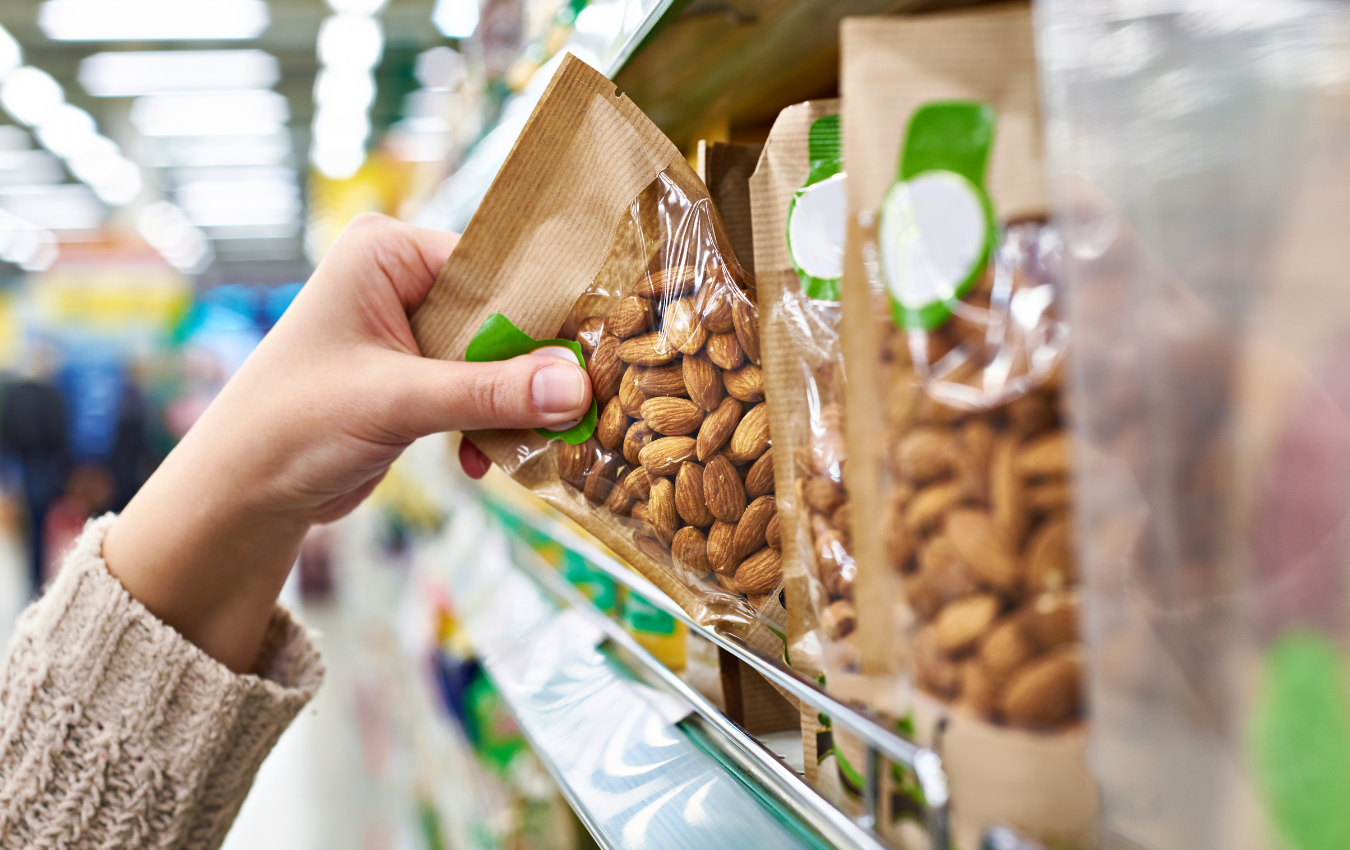
The flexible packaging industry is experiencing a significant evolution as it leans into more sustainable practices. Amid growing environmental concerns, there’s a strong movement within the sector towards developing innovative, eco-friendly packaging solutions. This blog will delve into the most recent sustainable trends impacting the flexible packaging sector, pointing to a future where sustainability and innovation walk hand in hand. Adoption of Biodegradable and Compostable Materials Advancements in Recyclable Packaging Increased Use of Post-Consumer Recycled (PCR) Content Reduction in Packaging Sizes and Weights Innovation in Barrier Materials Investing in Sustainability Education and Transparency Adoption of Biodegradable and Compostable Materials As the world gradually moves away from single-use plastics, one trend that has taken center stage is the use of biodegradable and compostable materials in packaging. These materials are designed to break down naturally in the environment, minimizing their long-term impact on the ecosystem. For instance, some companies are turning to materials like Polyhydroxyalkanoates (PHA), which are fully biodegradable polymers derived from renewable resources. The aim is to make packaging that doesn’t just look good and protect the product, but also contributes positively to the planet. Advancements in Recyclable Packaging Recyclable materials offer another route towards more sustainable packaging. As recycling technologies improve, we are seeing a rise in the use of mono-material packaging — packaging composed of a single type of material, such as all-paper or all-polyethylene structures. This is a game-changer in the recycling process as it eliminates the need for separation, significantly simplifying the recycling process and ensuring that more waste is effectively recycled. Increased Use of Post-Consumer Recycled (PCR) Content Another trend making waves in the flexible packaging sector is the increased use of Post-Consumer Recycled (PCR) content. This involves using materials that have been previously used by consumers and then recycled. Using PCR content helps to lower the demand for new material production, reducing the overall environmental footprint of the packaging. Many companies are setting ambitious goals to incorporate a certain percentage of PCR content into their packaging within the coming years. Reduction in Packaging Sizes and Weights The drive towards sustainability is also encouraging brands to rethink the size and weight of their packaging. By reducing these aspects, companies can decrease the amount of raw material required in the packaging production process, leading to substantial environmental benefits. Furthermore, lighter packaging results in lower transportation emissions, another significant advantage in terms of reducing the carbon footprint. Innovation in Barrier Materials Traditionally, many flexible packaging options have relied on multi-layer structures to provide adequate barrier properties, protecting the contents from moisture, oxygen, and other damaging elements. However, these multi-layer formats can be difficult to recycle. As a response, the industry is innovating to develop high-performing, recyclable barrier materials. These new structures aim to maintain the same high level of protection for the packaged goods while also being easier to recycle, striking a balance between product protection and environmental responsibility. Investing in Sustainability Education and Transparency Many companies in the flexible packaging industry are investing in educating consumers about their sustainable efforts. They are providing information on their packaging about the materials used and how to recycle the packaging correctly. The idea is to involve consumers in the sustainability journey, allowing them to make informed decisions about the products they purchase. Conclusion: Flexible Packaging and Sustainable Trends With these sustainable trends, the future of the flexible packaging industry looks promising. While there are still challenges to overcome, significant strides are being made towards a more sustainable packaging landscape. As technology continues to advance and more innovative solutions are developed, it’s clear that sustainability is more than just a buzzword — it’s a commitment to our planet and future generations. So, in 2024, we can expect these trends to continue driving the flexible packaging industry toward a more sustainable and environmentally responsible future. If you are interested in sustainable and/or flexible packaging, then partner with Brown Packaging today to get started. (714)300-0650 request@brownpackaging.com Most Recent Posts: Categories: Corrugated Ecommerce ESD Design Display Flexible Packaging Foam Folding Carton Packaging Plastic Packaging Pouch Printing Protection Retail Rigid Box Thermoform Sustainability Subscribe To Our Newsletter By submitting your information, you agree to our terms and conditions and privacy policy. Custom Packaging Facebook Twitter LinkedIn Pinterest Relevant Posts

Flexible packaging is a dynamic and growing market that has revolutionized the packaging industry. From snack foods to pharmaceuticals, flexible packaging offers lightweight, cost-effective, and versatile solutions that cater to a wide range of products. With advancements in materials, printing, and technology, flexible packaging has become a popular choice for brands looking to differentiate themselves and meet changing consumer needs. In this blog, we will explore the top flexible packaging trends of 2023 that are driving sustainability and convenience. Quick Overview: 10 Flexible Packaging Trends of 2023 Sustainability Takes the Lead Digital Printing and Personalization Convenience is Key Smart Packaging The Rise of E-commerce Interactive Packaging Premiumization Transparency and Visibility Antimicrobial Packaging Resealable and Portion Control Packaging Sustainability Takes the Lead Consumers are increasingly concerned about the impact of packaging waste on the environment. As a result, sustainability has become a key driver in packaging innovation, and flexible packaging is no exception. Brands are embracing eco-friendly materials, such as plant-based and compostable plastics, to reduce their carbon footprint. Furthermore, lightweight and recyclable packaging is gaining popularity, as it reduces the use of materials and lowers transportation costs. Digital Printing and Personalization The rise of digital printing technology has enabled brands to personalize their packaging, creating a unique and memorable experience for customers. Flexible packaging allows for high-quality graphics and printing, enabling brands to showcase their products in a visually appealing way. This trend is expected to continue in 2023, with brands using digital printing to differentiate their products and attract consumers. Convenience is Key Consumers are increasingly busy and seeking products that fit their on-the-go lifestyles. Flexible packaging provides a convenient solution, allowing products to be easily transported and consumed. Packaging features such as resealable closures and easy-to-open seals are becoming standard, while innovative packaging designs that make products easier to use and consume are emerging. Smart Packaging The Internet of Things (IoT) has revolutionized many industries, and packaging is no exception. Smart packaging technology integrates sensors, NFC tags, and QR codes to provide information to consumers and enhance their experience. In 2023, we expect to see more brands adopting smart packaging technology to offer a range of benefits, such as improved product tracking, food safety, and consumer engagement. The Rise of E-commerce The pandemic has accelerated the shift towards e-commerce, with online shopping becoming the norm for many consumers. Flexible packaging is ideal for e-commerce, as it offers cost-effective and lightweight solutions that can be easily shipped. Brands are expected to continue investing in e-commerce packaging in 2023, with features such as tamper-evident seals and easy-open tear notches becoming essential. Interactive Packaging Interactive packaging takes personalization to the next level, offering a fun and engaging experience for customers. This type of packaging can include augmented reality, QR codes, or other interactive elements that allow customers to learn more about the product, access exclusive content, or play games. Premiumization As consumers become more discerning, premiumization has become a key trend in flexible packaging. High-quality materials, sophisticated design, and premium finishes are increasingly being used to create a premium look and feel for products, elevating the perceived value and enhancing the overall consumer experience. Transparency and Visibility Consumers are increasingly interested in the source, quality, and safety of the products they buy. Flexible packaging is ideal for showcasing product transparency and visibility, with clear windows or see-through packaging. This trend is expected to continue in 2023, with brands using transparent and visible packaging to build trust and convey product quality. Antimicrobial Packaging In the wake of the COVID-19 pandemic, antimicrobial packaging has emerged as a trend for 2023. Antimicrobial packaging contains agents that inhibit the growth of bacteria, viruses, and fungi, making it ideal for products that require high levels of hygiene and safety. Resealable and Portion Control Packaging Consumers are increasingly looking for portion control and convenience when it comes to packaging. Resealable packaging allows customers to consume products at their own pace, while portion control packaging ensures that products are used in the right quantities. These features are expected to continue to be popular in 2023, especially for products such as snacks and beverages. Conclusion: Flexible Packaging Trends For 2023 In conclusion, flexible packaging is a dynamic and evolving industry that is driven by innovation and sustainability. As we look ahead to 2023, we expect to see brands continue to prioritize eco-friendly materials and digital printing, while also focusing on convenience and smart packaging. With the rise of e-commerce and changing consumer needs, flexible packaging is set to play an increasingly important role in the packaging industry. If you are interested in flexible packaging for your products, then partner with Brown Packaging today to get started. (714)300-0650 request@brownpackaging.com Most Recent Posts: Categories: Corrugated Ecommerce ESD Design Display Flexible Packaging Foam Folding Carton Packaging Plastic Packaging Pouch Printing Protection Retail Rigid Box Thermoform Sustainability Subscribe To Our Newsletter By submitting your information, you agree to our terms and conditions and privacy policy. Custom Pouches Facebook Twitter LinkedIn Pinterest Relevant Posts

Flexible packaging stands out in the packaging industry for its adaptability and efficiency. Utilizing materials that can flex and mold, this type of packaging adjusts its shape when filled or sealed, catering to a diverse range of products. The evolution of material technologies has not only made flexible packaging more cost-effective but also reduced material consumption during manufacturing, positioning it as a preferable alternative to traditional rigid and corrugated packaging solutions. Comprehensive Overview of Flexible Packaging Materials Used in Flexible Packaging The foundation of flexible packaging lies in its diverse material selection, each offering unique properties: Low Density Polyethylene (LDPE): Commonly used for its softness and flexibility, ideal for products requiring heat sealing. It’s resistant to various chemicals and is predominantly used in food packaging and consumer goods. High Density Polyethylene (HDPE): Known for its robustness and chemical resistance, making it suitable for household cleaning supplies, poly mailers, and items that encounter stress during shipping. Polypropylene (PP): With its high heat resistance, PP is perfect for packaging products that may be exposed to heat, such as microwaveable foods and certain consumer electronics. Polyethylene Terephthalate (PET): Offers excellent clarity and barrier properties against moisture and gases, widely used in the food and beverage industry. Polyvinyl Chloride (PVC): Chosen for its durability and resistance to environmental factors, PVC is used in non-food packaging such as shrink films and sturdy containers. Flexible Packaging Products and Their Applications Flexible packaging can be customized to suit a broad range of applications, offering unique solutions that are both protective and promotional: Pouches: Available in various styles such as stand-up, flat, and side gusset, pouches are popular for food products, cosmetics, and small consumer goods. Roll Stock: This material is used to create custom bags or pouches, tailored to specific product dimensions, commonly used for snacks, candies, and nutritional bars. Poly Bags: These versatile bags are suitable for a wide array of products, from apparel to food and electronics, featuring options like resealable closures and custom prints. Plastic and Bubble Mailers: Designed for shipping, these mailers are lightweight, durable, and can include bubble cushioning for added protection. Pouch Roll Stock Poly Mailer Benefits of Flexible Packaging The advantages of flexible packaging are numerous, making it a preferred choice for many businesses: Environmental Impact: Many materials used in flexible packaging are recyclable, and ongoing advancements are enhancing biodegradable and compostable options. Customization and Branding: Flexible packaging allows extensive customization in printing and design, enabling effective brand promotion and consumer engagement. Cost Efficiency: The lightweight nature of these materials reduces shipping costs and decreases the overall environmental footprint. Supply Chain Efficiency: Flexible packaging requires less storage space and can be transported more efficiently, allowing for more products per shipment compared to rigid packaging solutions. Pouch Roll Stock Poly Bag Conclusion: Flexible Packaging Explained: Flexible packaging offers a dynamic approach to packaging, combining innovative material use with functional design to meet a variety of industry needs. Whether for food, pharmaceuticals, or consumer goods, flexible packaging provides tailored solutions that enhance product protection, display, and sustainability. For businesses considering this packaging option, understanding the specific material properties and potential applications is crucial for making an informed decision. For further assistance and to explore flexible packaging solutions tailored to your needs, consider reaching out to packaging experts like Brown Packaging. (714)300-0650 request@brownpackaging.com Most Recent Posts: Categories: Corrugated Folding Carton Display Packaging Rigid Box Subscribe To Our Newsletter By submitting your information, you agree to our terms and conditions and privacy policy. Custom Packaging Facebook Twitter LinkedIn Pinterest Relevant Posts


